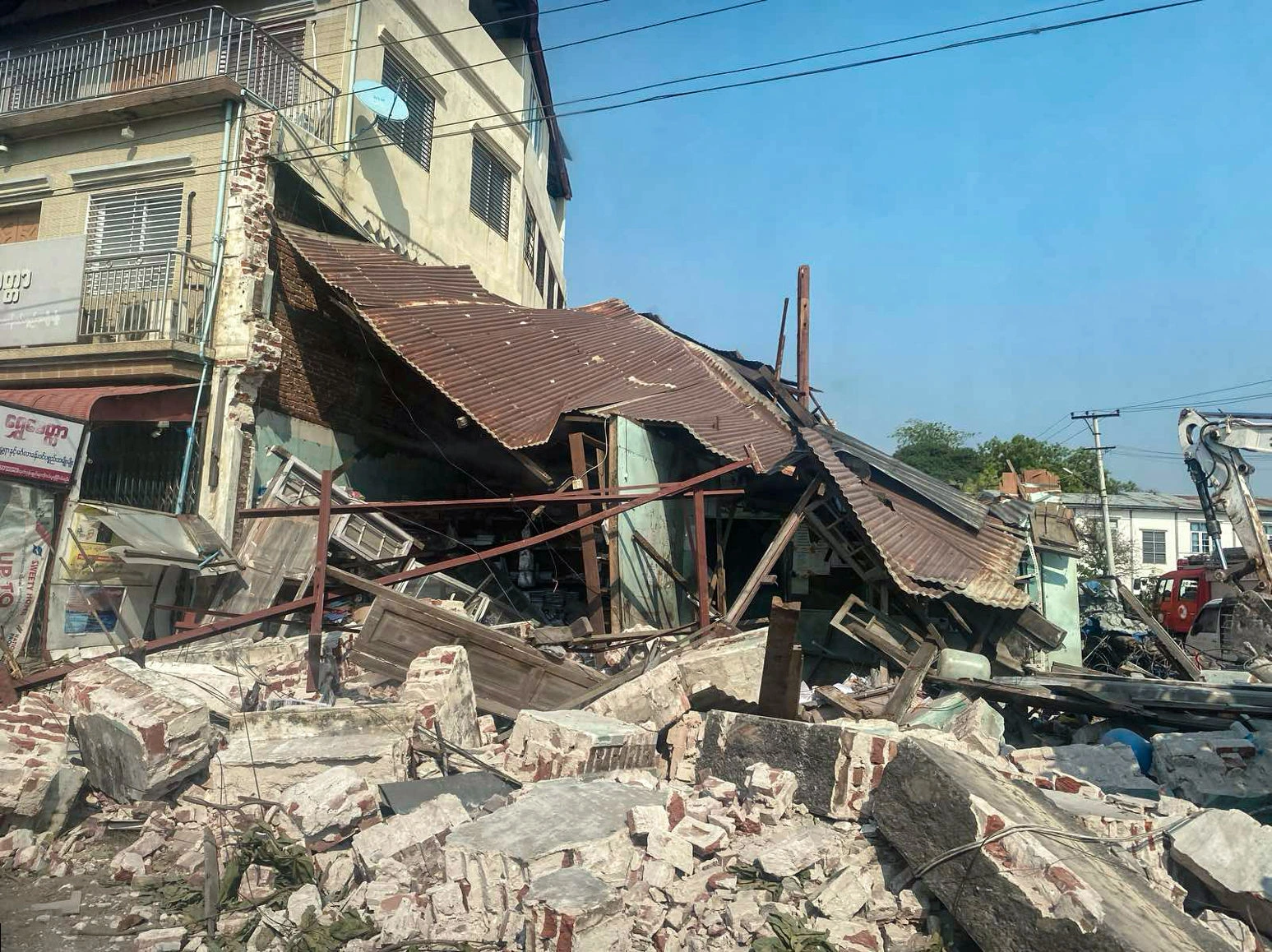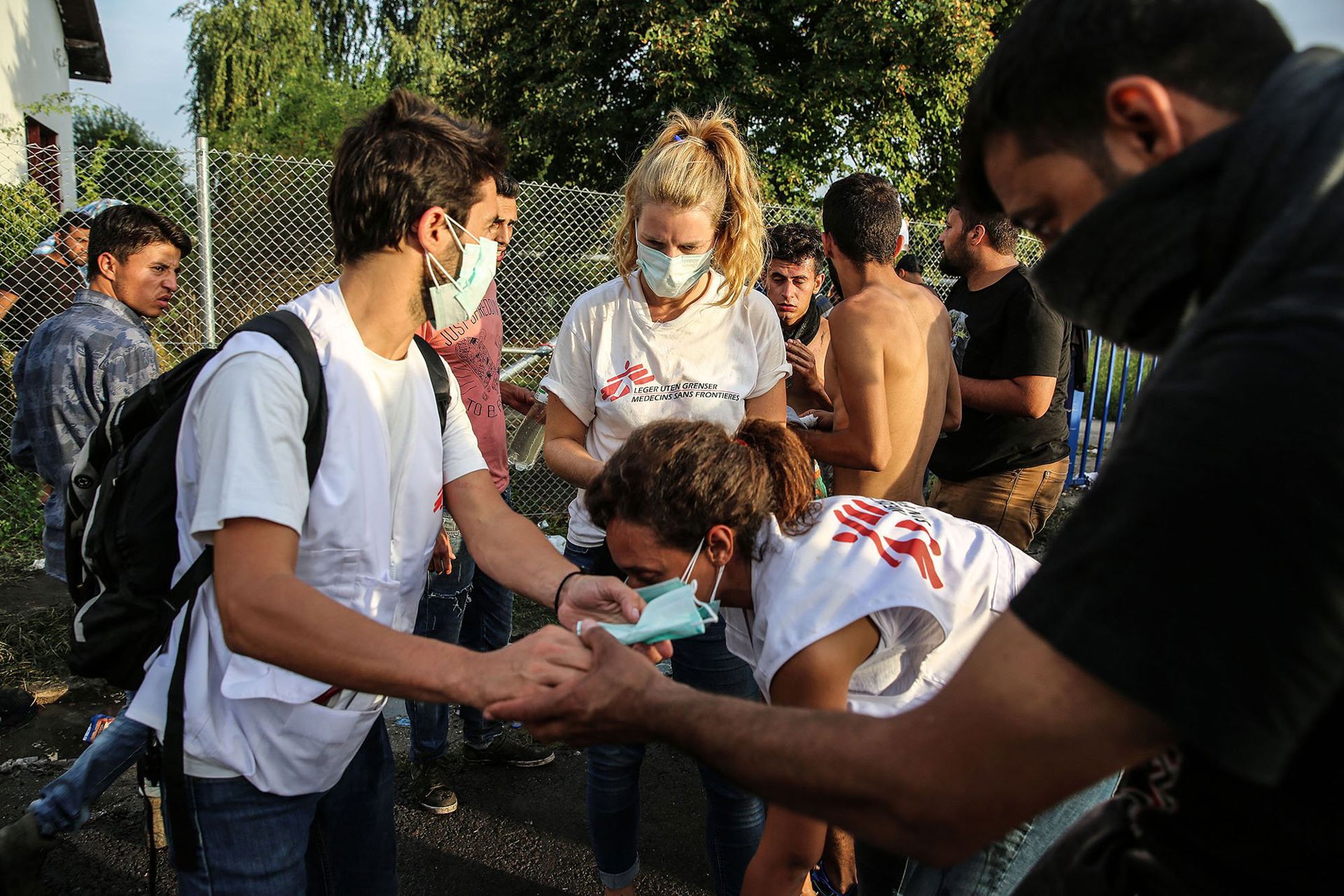MSF has reinforced its teams on the Serbian side of the border to Hungary, following the closure of the border which is leading to a rapid increasing number of refugees being stranded on the Serbian side. Part of the MSF team that was working in Roszke (Hungary) for the last weeks is currently supporting the teams in Horgos (Serbia), now that the Roszke camp is empty. As people are also starting to cross from Serbia into Croatia, MSF is today also sending teams to assess the situation on the Serbia-Croatia border.
MSF teams are currently monitoring the situation of those stranded along the border that might be affected by the clashes with the Hungarian police and army at the border with Serbia this afternoon. MSF has sent two mobile teams along the Serbian border after the clashes with the Hungarian police and army, which started at 16.00 pm, to check on the needs of those most affected. After Hungary closed down its border with Serbia, around 5.000 people gathered yesterday in the no man’s land (area between border controls), blocked by the fence erected by Hungary .
Thousands of refugees are stranded near the Serbian-Hungarian border, and are looking for alternatives to reach their European destinations as no information is provided by the Hungarian police on whether the border will remain closed. MSF is working to ensure a 24 hour provision of medical support at the border and is distributing tents to the families.
“Closing borders is not a solution, it just pushes responsibility to a neighbouring country and forces people to take more risks and makes their journey even harder, with a clear impact on their health” says Ana de Lemos, MSF project coordinator. “As long as conflicts continue in countries of origin, people will continue to be forced to become refugees, and they will continue to have to find ways out no matter the obstacles.”
The camp in Roszke, Hungary has been a crossing point for between 2,000 and 4,000 people every day in the last weeks, but was abruptly emptied by the authorities during the weekend and on Monday. The people there were transported first in buses and later on in trains towards the Austrian border. The MSF teams worked through Sunday night and during the whole of Monday until the last train departed. Despite the difficult circumstances, the teams managed to assist about 500 refugees, assisting to pregnant women, treating wounds and respiratory problems.
Once the camp and the train station had emptied, the team in Roszke crossed over the border to support the team in Serbia, which has been assisting migrants and refugees in Subotica, Horgos, Belgrade and Presevo since December 2014 with medical mobile clinics and relief items. In addition to treating mainly skin infections and respiratory tract infections – the direct result of the people’s living conditions on the journey through Greece and the Balkans – MSF is also providing mental health support. A total of 5072 consultations have been carried out in Serbia since the start of activities in late 2014 until 31 August.
Serbia remains a country ill prepared to take care of the most immediate needs of refugees and migrants. Its five asylum centres can only accommodate up to 1,000 people at any given time. Over the summer, the authorities sought to increase the country’s reception capacity and built three additional outdoor tent camps in Presevo and Miratovac in the south and Kanijza in the north, with a total maximum capacity of 1,200 people.
“The people stranded on the Serbia-Hungary border are currently in a limbo situation, not able to go back or move forward with no answers whatsoever where to find protection” said Aurélie Ponthieu, MSF Humanitarian Advisor on displacement. “They haven't crossed a single European country which has been able to respond adequately to their needs. This shows the absurdity of the current European response to this refugee situation."



